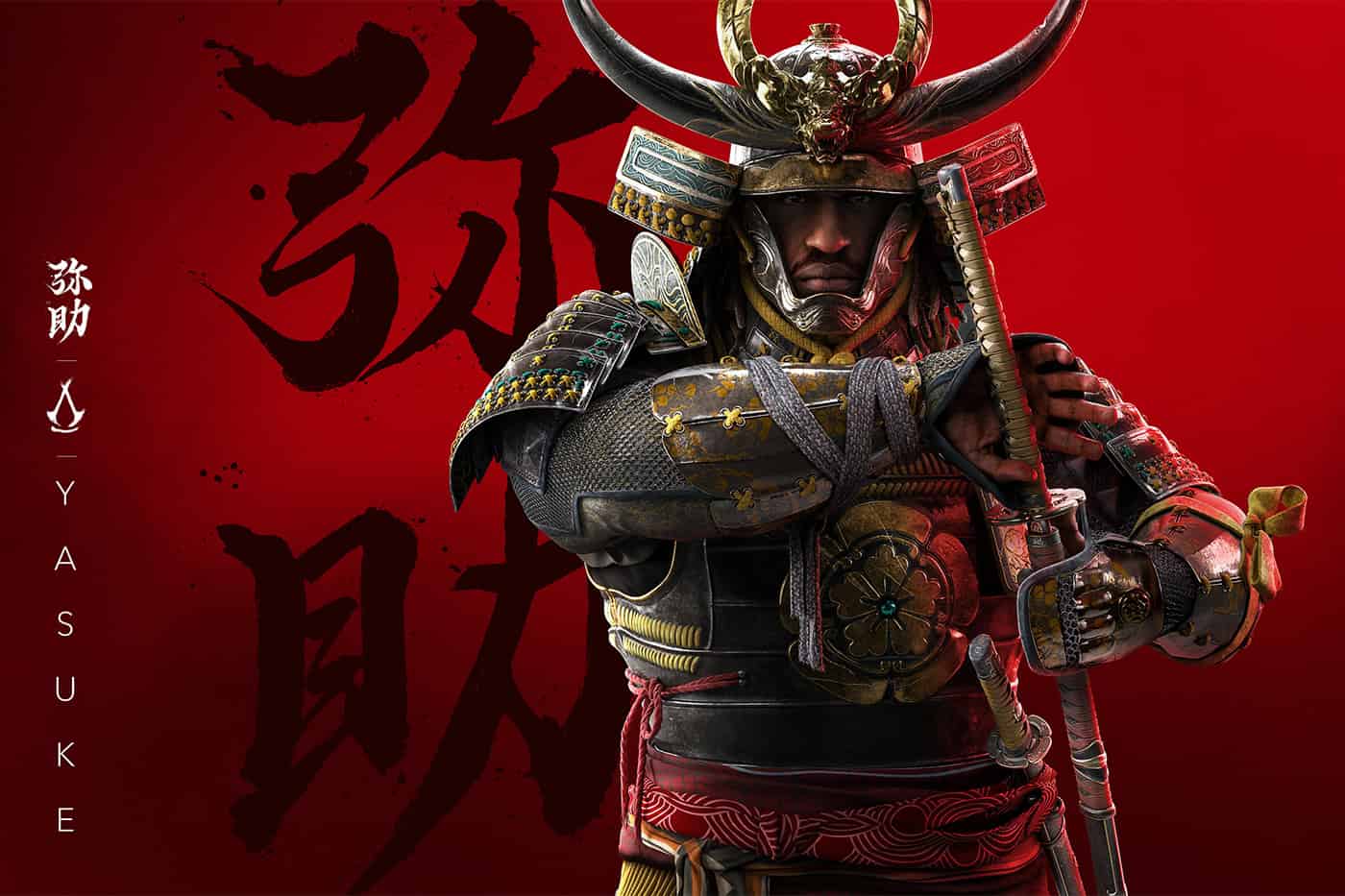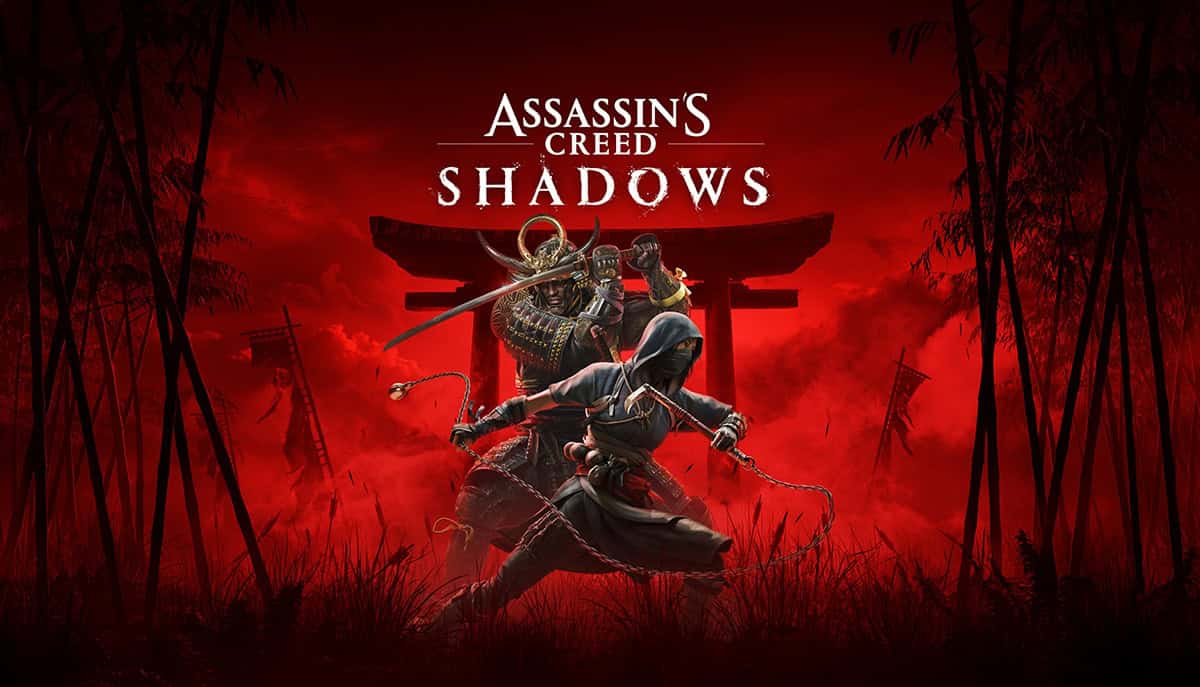The inclusion of Yasuke, a 16th-century African man who served a Japanese warlord, in “Assassin’s Creed Shadow” has sparked debates about historical accuracy, cultural sensitivity, and representation in gaming. While some view his inclusion as an opportunity to share a unique story, others raise concerns about potential misrepresentation.
Ubisoft has acknowledged these discussions and aims to deliver an immersive experience that respects the historical context of the Sengoku period while portraying diverse characters. The situation highlights broader societal issues regarding representation in media and the responsibilities of developers in storytelling.

Addressing Concerns About Yasuke in Assassin’s Creed Shadows
The Controversy Surrounding Yasuke
The upcoming release of Assassin’s Creed Shadows has sparked much discussion, particularly regarding the inclusion of Yasuke as a playable character. Yasuke was a real historical figure, an African man who served Oda Nobunaga, a powerful Japanese feudal lord, in the 16th century. Some have questioned the choice to make him a central character in a game set in feudal Japan. These concerns range from questions about historical accuracy to worries about cultural representation.
Ubisoft’s Response
Ubisoft, the game’s developer, has addressed these concerns directly. The game’s director stated that they understand Yasuke’s historical importance and are committed to portraying him respectfully. This statement aimed to reassure players that the development team is taking the matter seriously.
Historical Accuracy and Representation
A key point of discussion is how accurately Yasuke’s story will be depicted. There are limited historical records about Yasuke, leaving room for interpretation. Some worry that the game might take too many liberties with his story. Others argue that video games, as a form of entertainment, often take creative licenses with historical events. The challenge for Ubisoft is to balance historical accuracy with the needs of a compelling narrative.
Dual Protagonists: Yasuke and Naoe
Assassin’s Creed Shadows features two playable characters: Yasuke and a female shinobi named Naoe. This dual protagonist system offers different gameplay styles. Yasuke is expected to be a more combat-focused character, while Naoe will likely emphasize stealth and agility. This approach allows players to experience the game from two distinct perspectives.
What We Know About the Game
The game is set during the Sengoku period, a time of intense conflict in Japanese history. Players will explore various locations in feudal Japan. The game promises an open world with a focus on action, adventure, and stealth.
Comparison of Playable Characters
| Character | Fighting Style | Focus |
|---|---|---|
| Yasuke | Strength and direct combat | Action and heavy attacks |
| Naoe | Agility and stealth | Stealth and assassination |
Addressing Common Questions
- Is Yasuke’s story fictionalized? Yes, to some extent. While based on a real person, the game will likely include fictional elements to create a compelling story.
- Will the game be historically accurate? Ubisoft has stated its intent to be respectful of history, but some creative liberties are expected.
- When will the game be released? As of right now, there isn’t a firm release date.
The Future of Historical Representation in Games
The debate surrounding Yasuke’s portrayal in Assassin’s Creed Shadows highlights a larger conversation about historical representation in video games. As games become more realistic and immersive, questions about accuracy, cultural sensitivity, and responsible storytelling become even more important. Developers face the task of creating entertaining experiences while also being mindful of the historical and cultural contexts they are depicting.
Other Historical Figures in Video Games
The use of historical figures in video games is not new. Many games have featured real historical figures as characters. For example, the Civilization series lets players lead historical civilizations, while games like Total War: Shogun 2 focus on specific historical periods. This practice can both educate and entertain, but it also carries the responsibility of accurate and respectful portrayal. When done well, it can bring history to life for a new audience. When done poorly, it can perpetuate harmful stereotypes or misunderstandings. The discourse surrounding Yasuke and Assassin’s Creed Shadows serves as a reminder of the importance of this balance.
Short Summary:
- Yasuke, a Black samurai from the 16th century, is one of the game’s two main characters.
- Critics question the historical accuracy of Yasuke’s representation and the absence of a Japanese male protagonist.
- Ubisoft emphasizes the importance of Yasuke’s story, while acknowledging the creative license taken in the game.
Ubisoft’s newest release, “Assassin’s Creed Shadows,” finds itself at the nexus of history and entertainment, as it shines a spotlight on Yasuke, the first foreign samurai in Japan’s storied past. While the game draws upon real historical narratives, it is clear that certain representations have stirred controversy among fans and critics alike. Some have voiced concerns over Yasuke’s depiction and the absence of a male protagonist of Japanese descent, igniting discussions on cultural representation and historical fidelity.
Yasuke’s journey begins in the late 16th century, capturing the imagination of many due to his exceptional life story. As Michael Thornton, history professor at Northeastern University, explains, “Yasuke was a Black African man who arrived in Japan in the service of Portuguese Jesuits. His appearance was nothing short of a spectacle in a country that had very few individuals of African descent at that time.” Consequently, Yasuke attracted attention from the powerful feudal lord Oda Nobunaga, who summoned him to serve as one of his vassals.
“He basically demands that Yasuke work for him. He doesn’t enslave Yasuke or anything like that. He basically asks him to serve him as one of his vassals.” – Michael Thornton
This request, however, raises the question of whether Yasuke should be classified as a samurai. Critics argue that samurai status was traditionally reserved for individuals with familial ties to the warrior class, which Yasuke did not possess. Thornton adds, “To make this all more complicated, the 1580s are a time when the definition of a samurai is not even fixed within Japan.” While there is evidence of Yasuke’s close service to Nobunaga, the ambiguity of his status continues to spark debate.
“Being given a ‘stipend’ and serving Nobunaga closely fulfills the important requirements of a ‘contract between master and servant’ that defined a samurai.” – Yu Hirayama, historian
Despite the debates surrounding his samurai status, Yasuke eventually fled Japan following Nobunaga’s assassination. The assassins spared him, granting him a unique narrative arc that has intrigued writers and historians alike. However, Yasuke’s eventual fate after leaving Japan remains shrouded in mystery, capturing public imagination and leading to various adaptations in contemporary culture.
In the wake of these discussions, Ubisoft has explicitly urged players and critics to recognize the fictional nature of their portrayal of historical events. Simon Lemay-Comtois, the associate game director for “Shadows,” noted that while there has been significant criticism online, “We know why Yasuke is in the game, we know how he fits, we know how he builds towards the story.” Lemay-Comtois asserts that both protagonists, Yasuke and the female warrior Naoe, provide essential perspectives to the game’s narrative.
“It’s not Naoe’s game, it’s not Yasuke’s game, it’s both of these characters’ games.” – Simon Lemay-Comtois
While acknowledging the “noise online,” Ubisoft emphasizes the intent behind Yasuke’s inclusion: to honor and expand upon his historical narrative without rigid adherence to historical fact. This approach aims not only to entertain players but also to portray a moment of historical significance in a rich cultural landscape. The game is set against the backdrop of the Sengoku period, a time characterized by political turmoil and fierce samurai warfare, offering numerous opportunities for engaging storytelling.
Developers have highlighted the collaborative efforts made to ensure an authentic representation of Feudal Japan, indicating that historical consultants and cultural experts were involved in shaping the narrative. The driving force behind Yasuke’s inclusion, however, lies in the desire to create an immersive gaming experience that intertwines fact and fiction effectively.
“Assassin’s Creed Shadows is first and foremost designed to be an entertaining video game that tells a compelling, historical fiction set in Feudal Japan.”
Despite Yasuke’s celebrated status in the game, reactions from various communities differ. Some fans express concerns about the potential implications of featuring a non-Japanese character in such a pivotal role, while others celebrate the diverse representation within a franchise that has historically pushed boundaries. The historical inaccuracies raised in discussions largely stem from misunderstandings regarding Yasuke’s role and the creative liberties taken by Ubisoft in constructing the narrative.
As “Assassin’s Creed Shadows” approaches its launch date on March 20, expectations are high. Pre-release buzz indicates that players are eager to experience this dual-protagonist tale for themselves. Advance previews suggest that both Yasuke and Naoe are well-developed characters, each with unique gameplay mechanics and story arcs, which adds depth to the experience. In its preview coverage, GamesRadar’s Oscar Taylor-Kent praised both characters for their immediate likeability and emphasized the rich storytelling elements available to players.
The excitement surrounding the release is palpable, as players anticipate not only dynamic gameplay but also engaging storytelling that highlights the complexities of the historical period. Brooke Davies, the game’s associate narrative director, underscores the delicate task of representing such a multifaceted period in Japanese history while balancing player choice. “I think it was really great for the team to have so much material to look at when we were preparing to make the game. Life can be stranger than fiction,” Davies noted, reflecting on the wealth of creative inspiration available.
As gamers embark on their journey in “Assassin’s Creed Shadows,” they will explore a narrative that seeks to blend historical elements with impactful storytelling. The dual narrative of Yasuke and Naoe is designed not only to entertain but also to immerse players in a world where the complexities of character interactions reflect the intricacies of the historical backdrop.






